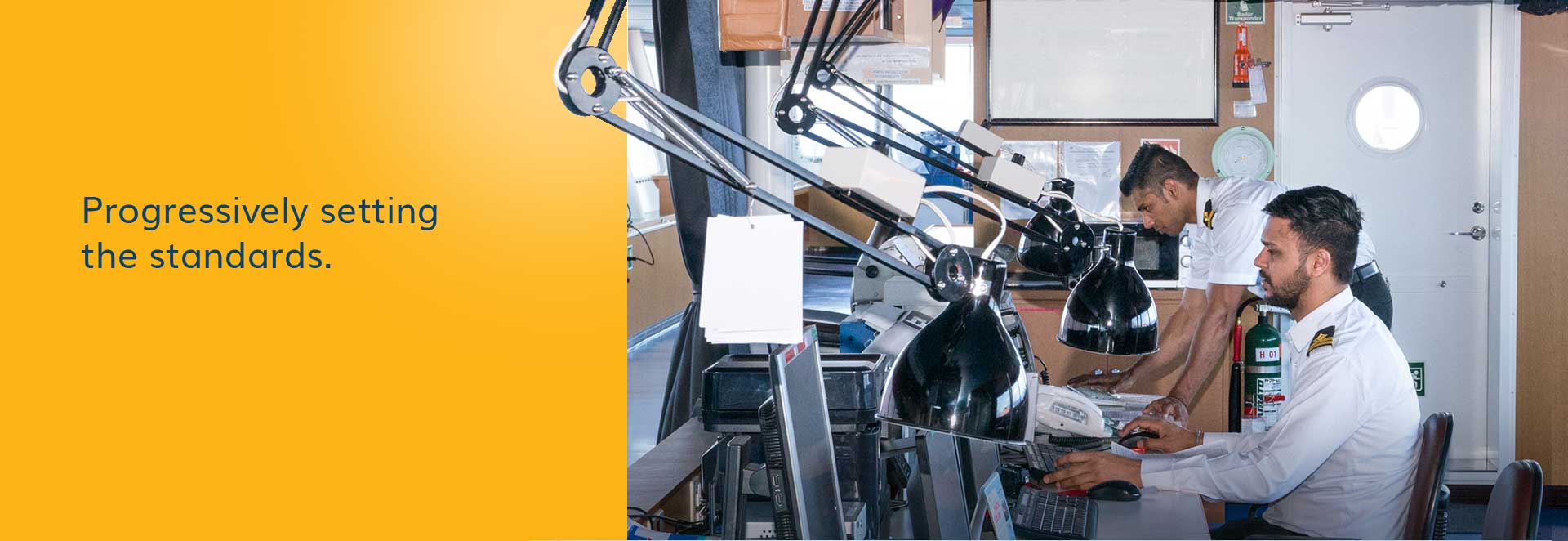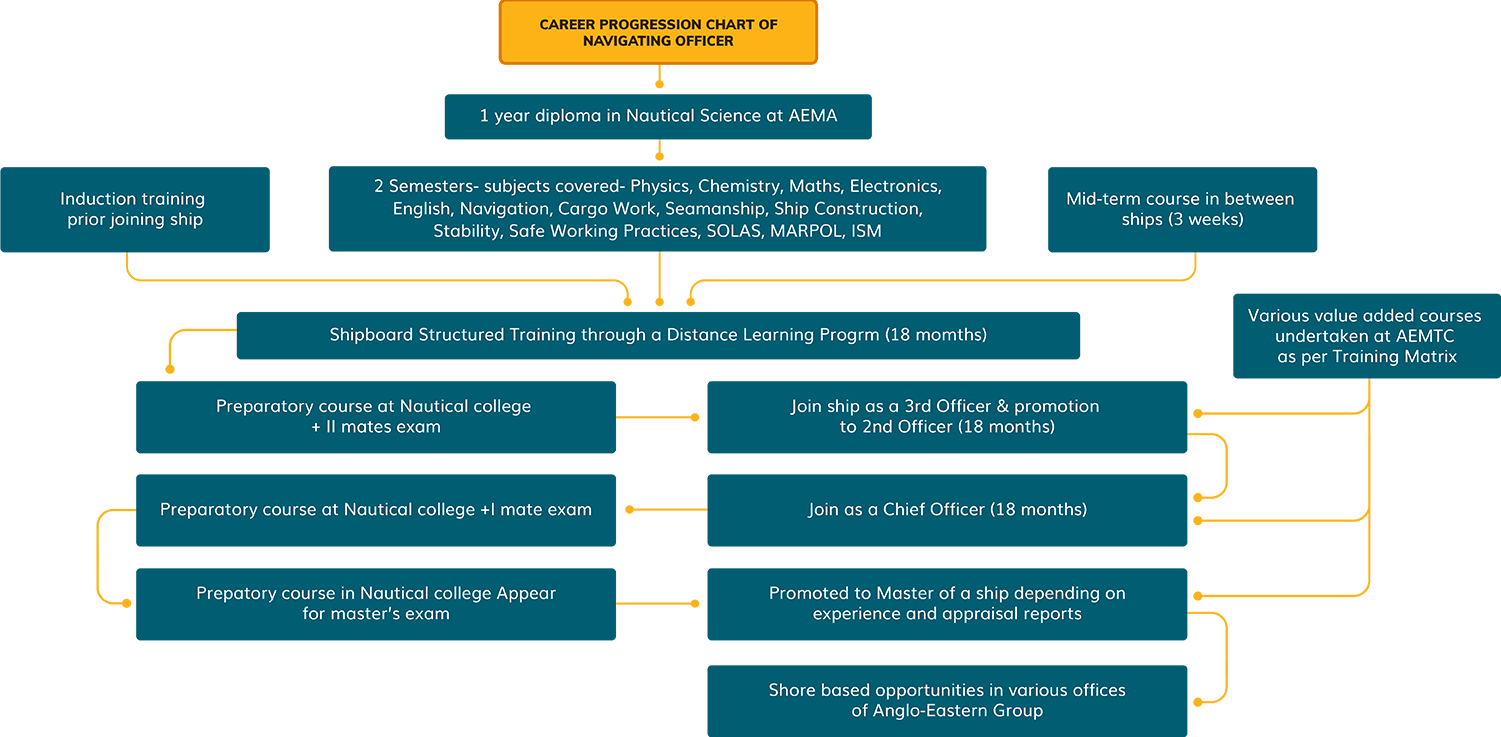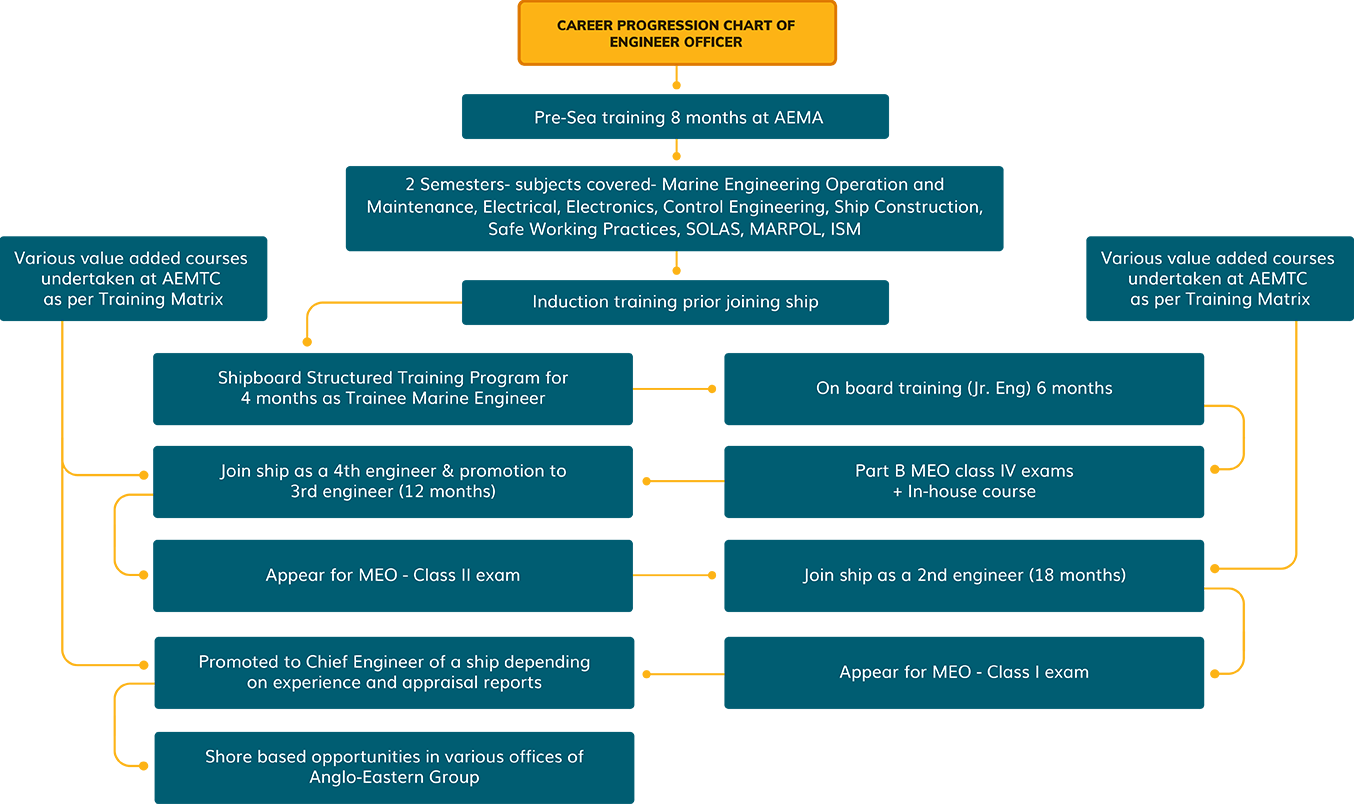
Merchant Navy's
Career Life Cycle

Onboard Career Progression for Merchant Navy
Ships Officers work in two departments viz. Deck (often called Navigation) and Engineering. It all begins when you enrol as an Officer Trainee! The education and training programs for each discipline are a mixture of academic work combined with practical training, at college/university and at sea.
The courses at AEMA will equip you with a professional seafaring competence along-with a degree or higher national and other recognised qualifications to give you a lifetime of rewarding challenges. Seafaring certification and qualifications give you a wealth of opportunity – in the longer term this can be either at sea or ashore.
For each of the job roles mentioned below you will have to hold the designated seafarer Certificate of
Competency, which is issued by the Director-General of Shipping (DGS), India. You will receive the first of these when you complete your DGS approved education and training course which is delivered at AEMA.
Further certificates will be gained as you increase your experience at sea and pass the required examinations. You need to have the certificate for the next job role before you can be promoted into it – so it's important to try and get them as soon as you can!
Below you can see the epaulettes - the ornamental shoulder piece or decoration used to show job roles (ship ranks) in the Merchant Navy.
DECK
OFFICERS
As a Navigation Officer (usually called a Deck Officer), you will be a vital member of the ship’s management team. You will be an asset manager of sophisticated and expensive vessels, valuable cargo and/or passengers in your charge.
While on duty (called a ‘watch’), it will be down to you to make decisions on steering and manoeuvring the ship, controlling navigation and communications. Using the latest technological systems, you’ll have control at your fingertips. In port, you’ll be responsible for cargo handling and ship stability. As a senior deck officer, you’ll be a leading member of a small team of highly-skilled, professional seafarers, including junior officer and ratings. You’ll direct and supervise the work of your team – maintaining the ship and its equipment at optimum efficiency. Your ultimate goal on board would be to become the Master (Captain).
What qualities and skills will you need?
You’ll need to be decisive, calm and able to inspire confidence in others. You’ll be a good team member with analytical/ critical thinking ability, an interest in technology, and good written and verbal communication skills. Beyond that, confidence, enthusiasm and self-reliance are essential attributes.


ENGINEER
OFFICERS
As an Engineer Officer, you will operate and maintain all the mechanical and electrical equipment throughout the ship. You will be responsible for power generation and distribution systems and for other equipment such as elevators, refrigeration plant and pumping and ventilation systems.
Via a bank of high-tech instrumentation, you’ll monitor mechanical, electrical, hydraulic and control equipment, and have charge of sophisticated engine management systems. You will overhaul and maintain equipment throughout the ship, where your engineering problem-solving skills will be your greatest asset. At sea, if equipment goes wrong you can’t just pull in to the nearest garage! It will be up to you to diagnose the fault, get the equipment dismantled, repaired and reassembled and back into operation. As a senior engineer officer, you’ll lead a team of highly-skilled, professional engineering personnel and supervise their work at sea and in port. Your ultimate goal on board would be to become the Chief Engineer.
What qualities and skills will you need?
You’ll need to be practical, resourceful and have a real interest in mechanical and electrical systems, with good analytical/ critical thinking ability. Like deck officers, you’ll be decisive, calm and able to inspire confidence in others. Good written and verbal communication skills are required. Beyond this, you’ll need to be prepared to learn about new technology and adapt your skills to its use.
Below you can see the epaulettes (the ornamental shoulder piece or decoration used to show job roles (ship ranks) in the Merchant Navy).


ELECTRICAL
OFFICERS
Electrical Officers are responsible for monitoring all electronic and electrical equipment on board, to maximise the operational safety and efficiency of the vessel. As an Electrical Officer, you’ll work in close association with Deck and Engineering Officers for all electrical and hydraulic technology and machinery related challenges. You’ll be responsible for power generation and distribution systems and for other equipment such as elevators, refrigeration and electrical bus systems.
What qualities and skills will you need?
You should have an interest in electrical and electronic control and power systems. Practical troubleshooting skills will be to the fore, with good team working skills.


